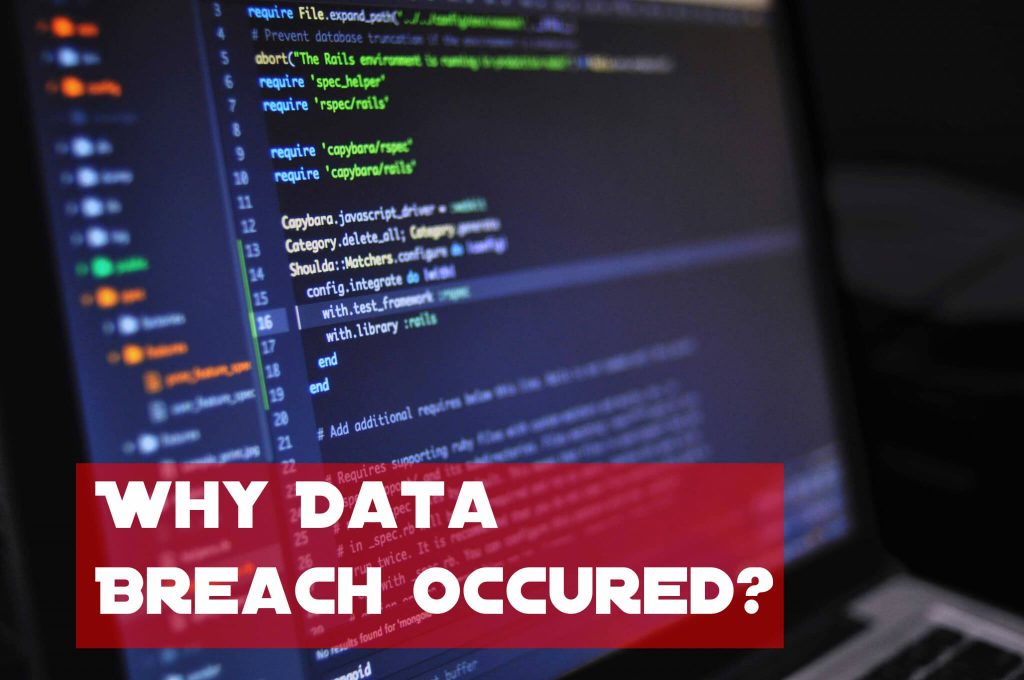Data Breach
A data breach is a security incident in which information is accessed without permission. Breaches of data can harm companies and consumers in various aspects. They are an expensive cost that can harm life and reputations and take time to repair them. It may seem like stories of huge breaches of data often pop up in the media these days. But it shouldn’t surprise all that. More and more of our data has moved to the digital globe as technology advances. As a result, cyber attacks have become more prevalent and more expensive. By legislation, each of the three main loan reporting organizations entitles you to a free loan report every 12 months. The question is, why data breach can occur?
Globally, the average total cost to a company of a data breach is $3.86 million, according to a study by the Ponemon Institute. This means that at $148 on average per stolen record, online crime is a real threat to anyone on the Internet. According to Symantec, personally identifiable information, such as full names, credit card numbers, and Social Security numbers, was the most common form of data lost to data breaches in 2016, with personal financial information close behind. Corporations and businesses are extremely attractive targets to cybercriminals, simply due to the large amount of data that can be nabbed in one fell swoop.
4 reasons led to data breaches
Cybercrime is a profitable industry for attackers and continues to grow. Hackers seek personally identifiable information to steal money, compromise identities, or sell over the dark web. Data breaches can occur for a number of reasons, including accidentally, but it typically carries targeted attacks out in these four ways:
1. Exploiting system vulnerabilities.
Out-of-date software can create a hole that allows an attacker to sneak malware onto a computer and steal data.
2. Weak passwords.
Weak and insecure user passwords are easier for hackers to guess, especially if a password contains whole words or phrases. That’s why experts advise against simple passwords and in favor of unique, complex passwords.
3. Drive-by downloads.
You could unintentionally download a virus or malware by simply visiting a compromised web page. A drive-by download will typically take advantage of a browser, application, or operating system that is out of date or has a security flaw.
4. Targeted malware attacks
Attackers use spam and phishing email tactics to try to trick the user into revealing user credentials, downloading malware attachments, or directing users to vulnerable websites. Email is a common way for malware to end up on your computer. Avoid opening any links or attachments in an email from an unfamiliar source. Doing so can infect your computer with malware. And keep in mind that they can make an email to look like it comes from a trusted source, even when it’s not.
Now you know why data breach can occur. Next, let’s get to know how to protect our personal information from being breach.
How can I help protect my personal information in the event of a data breach?
To help protect your identity, it’s important to take steps to help protect yourself and your personal information. These steps can include:
Use strong, secure passwords.
Use a complex and unique password for each of your online accounts because keeping track of all those passwords can be difficult.
Monitor your bank and other financial accounts.
Check your accounts on a regular basis for unfamiliar activity. And if the companies offer activity alerts via text or email, it may make sense for you to sign up for them.
Check your credit report.
Do so regularly to see if a thief has attempted to open a new credit card or another account in your name. By legislation, each of the three main loan reporting organizations entitles you to a free loan report every 12 months.
Take action as soon as possible.
Contact the financial institution involved immediately if you see suspicious activity. Also, if in a data breach your information has been stolen, let them know as well.
Secure your phone.
If you don’t have a password on your phone, give it one. Even though entering a password is tedious every time you use your phone, if your device is lost or robbed, it offers a line of protection. Not having password is one of the reason why data breach can occur.
Use only secure URLs.
Reputable sites begin with https://. The “s” is key. This is especially important when entering credit card or other personal information.
Avoid over sharing on social media.
Never post anything about sensitive data and change your settings to private your profiles. Hold off sharing holiday pics on social media while you’re still on holiday or while you’re at it. That says everyone can sit in you empty house, a ideal burglary target.




